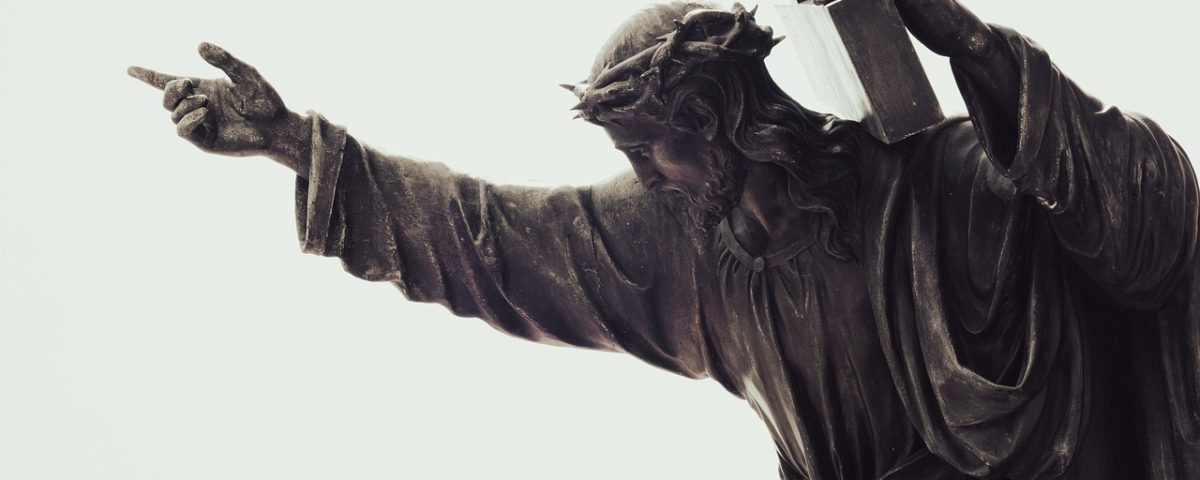You’ve often heard me say how our experience of Christianity, of the Church, is so very different from the Church of the past, from the Christianities of long ago.
Sometimes I am grateful for that difference; sometimes I’m depressed by it, thinking about the beautiful wildness of the faith, what we’ve lost, what we’ve traded for the managed and bureaucratic thing we know today, the comfortable, bourgeois faith we can all easily control. It’s hard to judge it the same thing at all—what today passes for Christianity and what was Christianity then, in its earlier and more strange and more beautiful adolescence.
And, of course, it simply is what it is. I don’t recommend trying to recreate the past. Besides impossible, such attempts always end up something of a joke, sometimes even worse. It’s a bad fantasy, bad theology too, to want to recreate what has been completely lost. This, I think, is true culturally, socially, and in the Church. There is no simple going back. There may, indeed, be the recovery of truth, the renewal of things, but that is a spiritual act, not a managed event. Again, it’s about control: the reason so many supposed traditionalisms fail is because they are too managed, not wild enough.
Now I’m sorry for beating around the bush here, for I am obviously talking about the ways Christianity is experienced today in its many varieties, denominations, and inclinations both progressive and conservative, and everything else. Conditioned, all of us, no matter our politics, to treat Christianity as if it’s some sort of supplier of private or cultural meaning, as if its main purpose is to make us better citizens or more respectable, we’ve allowed, in more ways than you can count, Christianity to become something it isn’t—twisted to approve our prior identities, twisted to gain something else, power perhaps. This is what’s wrong, I think, with what people are calling “Christian nationalism.” It’s simply heresy; it’s bad Christianity. But, of course, I consider most Western progressivisms heresy too, for these simply want a Christianity which approves whatever expressivist individuals approve, the herd of them. All of them I consider false Christianities—saint-less, martyr-less.
Again, I know I’m beating around the bush; I’m not naming names. I don’t want to do that. I want to be respectful. I am thinking of that person, but that other person too. But I’m also thinking about myself when I suggest that our experience of Christianity is largely determined by the material conditions of our lives—by things like politics, class, upbringing. And I’m not really judging it at all; there is no getting away from our context, and God works through and within our context. God took flesh in context. Rather, what I’m trying to say is that hidden within the noises of the world—the noises of politics, social conflict, your family, the institutions of the Church—within those noises, we must listen for the voice of the Good Shepherd, his beautiful voice. But that demands we be contemplatives, which is why I’m always begging you to find a Bible and somewhere quiet to pray.
In a world of scribes and Pharisees, in a world of the false, false political leaders and false religious leaders—”thieves,” he called them, who only want to “steal and slaughter and destroy”—in this world (very much like ours) Jesus called himself the “good shepherd.”[1] A political image, by calling himself a “shepherd” Jesus was challenging the real politics of the day; he was not offering some mere spiritual image, some nice thought to help you get through it all. Jesus was no Enlightenment liberal; for Jesus, religion was no mere private supplier of meaning. He was announcing a kingdom. But what does that mean? This is where we so often mess it up, trying to square the kingdom of the Good Shepherd with some politics or something else that doesn’t work. But the fact is there is no straight line from the Bible to the politician you prefer. That’s the difficulty: Jesus wasn’t being only spiritual here; he was talking about something else. And I guess all I’m saying is that it’s better to sit with this difficulty rather than pretend we’ve figured it out, thinking somehow God approves of our politics when he likely does nothing of the sort.
Friends, what I’m saying is that in this election year, as the world gets louder—and even if some of those loud people are Christians—prepare yourself to be the sort of person who can listen for the true Shepherd’s voice. I will not harass you about your politics; we can and should talk about it as friends, knowing our friendship is strong enough to handle it. And believe it or not, priests can preach on political matters. But I hope you never hear in this parish one of those foolish partisan homilies, the kind that pleases some too much while enraging others. I don’t want to do that to you. Party politics is important; I don’t want us to be a community that ignores real issues. It’s just that to do that well, intelligently and charitably as Christian people, we must be people who hear the Shepherd’s voice, who abide in him in Body and Blood and prayer. Which is what I consider my job this year: to make sure this place is a place where you can hear the real Shepherd’s voice—in this small sheepfold of parish in a world full of wolves. Amen.
[1] John 10:10-11
© 2024 Rev. Joshua J. Whitfield










